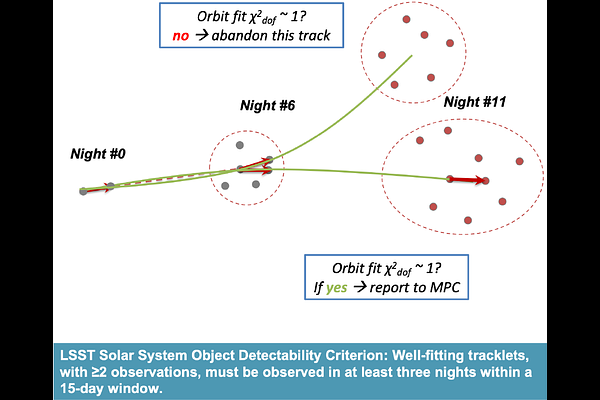Sorcha: A Solar System Survey Simulator for the Legacy Survey of Space and Time

Sorcha: A Solar System Survey Simulator for the Legacy Survey of Space and Time
Stephanie R. Merritt, Grigori Fedorets, Megan E. Schwamb, Samuel Cornwall, Pedro H. Bernardinelli, Mario Juric, Matthew J. Holman, Jacob A. Kurlander, Siegfried Eggl, Drew Oldag, Maxine West, Jeremy Kubica, Joseph Murtagh, R. Lynne Jones, Peter Yoachim, Ryan R. Lyttle, Michael S. P. Kelley, Joachim Moeyens, Kathleen Kiker, Shantanu P. Naidu, Colin Snodgrass, Shannon M. Matthews, Colin Orion Chandler
AbstractThe upcoming Legacy Survey of Space and Time (LSST) at the Vera C. Rubin Observatory is expected to revolutionize solar system astronomy. Unprecedented in scale, this ten-year wide-field survey will collect billions of observations and discover a predicted $\sim$5 million new solar system objects. Like all astronomical surveys, its results will be affected by a complex system of intertwined detection biases. Survey simulators have long been used to forward-model the effects of these biases on a given population, allowing for a direct comparison to real discoveries. However, the scale and tremendous scope of the LSST requires the development of new tools. In this paper we present Sorcha, an open-source survey simulator written in Python. Designed with the scale of LSST in mind, Sorcha is a comprehensive survey simulator to cover all solar system small-body populations. Its flexible, modular design allows Sorcha to be easily adapted to other surveys by the user. The simulator is built to run both locally and on high-performance computing (HPC) clusters, allowing for repeated simulation of millions to billions of objects (both real and synthetic).